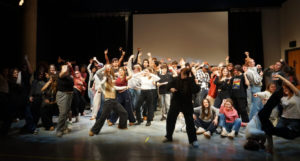Veterans make emotional plea for more accurate representation in powerful new film

The film was made as part of the University of Exeter Military Afterlives project, which is tacking how British veterans and their families have experienced the transition out of the military and back into civilian life
Veterans have made an emotional plea in a powerful new film for more accurate representation so they are not seen as “mad, bad and sad”.
The men and women want to show those who have been in the armed forces don’t share the same values or live the same sort of lives, and most veterans move on successfully to different careers and are not “broken”.
The film was made as part of the University of Exeter Military Afterlives project, which is tacking how British veterans and their families have experienced the transition out of the military and back into civilian life.
It is hoped the film – “What is a veteran – beyond the cliché” – will highlight awareness of the narrow and cliched representations of veterans.
Researchers will now use it to start a conversation via social media on what the public perception of veterans is, and how this can be more accurately depicted and represented. The data will be used as part of further research and efforts to change policies.
Participants in the film – who are male and female – speak bravely about the misconceptions they face as veterans, and their anger that the political views of a minority are assumed to be shared by all those who have been in the armed forces. This situation is made worse by social media.
One participant said: “I’m a socialist, I believe in immigration because it’s the right thing to do”. Another said “I’m embarrassed by the harm the military causes around the world, that carbon emissions are not reported, that veterans have an exulted status while most are not worthy and wouldn’t want it”. Another said: “We all join the services to help, but we are not the same”.
Those who took part said the problem was most people’s experiences of veterans comes from TV dramas or films, where they are often depicted as having complex post traumatic stress disorder.
Researchers have found the process of transitioning from the military to civilian life can take a lifetime and support should be available for decades after people leave the services. The emotional labour of transition remains forever, and even veterans with secure housing and employment face significant emotional and mental burdens.
Experts working on the Military Afterlives project have previously recommended the lifelong support should cover issues such as negotiating identity, managing relationships, and negotiating the cultural differences between military and civilian workplaces.
The research was carried out by a team based at the University of Exeter. Dr Sarah Bulmer led the project working alongside three other researchers who are veterans – Dr David Jackson, a former Royal Marine who served in Northern Ireland and the Falklands war, Dr Caroline Micklewright, who worked in Royal Air Force logistics and who served in Iraq, and Dr Richard Davis, a Royal Signals officer for 24 years who served in Northern Ireland and the first Gulf War. During 2018 and 2019 they interviewed 49 veterans and their family members from across the South West of England about their life stories, including their experiences before they joined the military, whilst they were serving, and after they had left
Many participants described feeling stereotyped when they revealed their military background to civilians. Many participants found civilian workplace culture frustrating and hard to understand. Some were uncomfortable about government initiatives to ‘recognise’ and celebrate veterans.
The research found that veterans actively engage in their transition and that it isn’t a linear process of ‘adapting’ to civilian life.



